Prepare to be immersed in the captivating world of Lower Roanoke River Game Land, where nature’s wonders unfold amidst a vibrant tapestry of habitats, wildlife, and recreational opportunities.
Nestled within North Carolina’s coastal plain, this expansive game land spans over 120,000 acres, offering a sanctuary for diverse plant and animal species while providing an unparalleled playground for outdoor enthusiasts.
General Overview: Lower Roanoke River Game Land
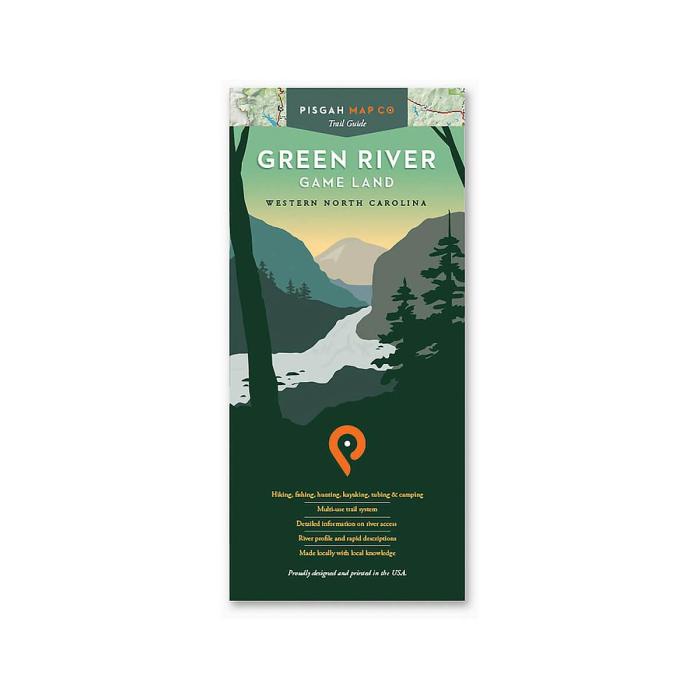
The Lower Roanoke River Game Land, a 10,000-acre expanse, is nestled along the Roanoke River in North Carolina. It’s a haven for outdoor enthusiasts, offering a wide range of recreational activities amidst stunning natural beauty.
The game land serves as a vital habitat for a diverse array of wildlife, including white-tailed deer, black bears, and wild turkeys. It also plays a crucial role in preserving the region’s water quality and biodiversity.
Purpose and Significance
The Lower Roanoke River Game Land was established to provide a sanctuary for wildlife, promote responsible hunting and fishing practices, and offer outdoor recreation opportunities for the public.
The game land’s significance extends beyond its recreational value. It contributes to the local economy by attracting tourists and supporting hunting and fishing industries. Additionally, it serves as an educational resource for students and nature enthusiasts.
Natural Features

The Lower Roanoke River Game Land encompasses a diverse range of habitats, creating a haven for a myriad of plant and animal species.
Within its expansive boundaries, the game land boasts lush forests, meandering streams, tranquil ponds, and vast wetlands. These diverse ecosystems support a rich tapestry of life, from towering hardwoods to delicate wildflowers and from elusive predators to playful aquatic creatures.
Flora
The Lower Roanoke River Game Land is a botanical wonderland, showcasing a staggering diversity of plant life. Towering hardwoods, such as oak, maple, and hickory, form a majestic canopy, providing shade and shelter for a myriad of understory species.
Wildflowers of every hue paint the forest floor, creating a vibrant mosaic during the spring and summer months. Delicate ferns unfurl their fronds, adding an ethereal touch to the woodland ecosystem.
Along the riverbanks and in the wetlands, aquatic plants thrive, providing vital habitat and sustenance for countless creatures. Cattails, rushes, and water lilies create a lush tapestry, while submerged vegetation provides food and shelter for fish and other aquatic life.
Fauna
The Lower Roanoke River Game Land is a haven for a diverse array of animal species, from majestic white-tailed deer and elusive black bears to playful otters and soaring eagles.
The forests are home to a variety of mammals, including bobcats, coyotes, foxes, and squirrels. The wetlands and riverbanks provide habitat for amphibians, reptiles, and waterfowl, including turtles, frogs, and ducks.
The skies above the game land are alive with birdsong, from the melodious trills of songbirds to the piercing calls of hawks and owls. Eagles soar overhead, their keen eyes scanning the landscape for prey.
Ecological Importance
The Lower Roanoke River Game Land plays a vital role in the ecological balance of the region. Its diverse habitats provide essential resources for countless species, contributing to the overall biodiversity of the area.
The forests act as carbon sinks, absorbing carbon dioxide and releasing oxygen into the atmosphere. The wetlands filter pollutants from the water, improving water quality downstream.
The game land also serves as a natural corridor for wildlife movement, allowing animals to disperse and find new habitats. This connectivity is crucial for maintaining healthy populations and ensuring the long-term survival of species.
Recreational Opportunities
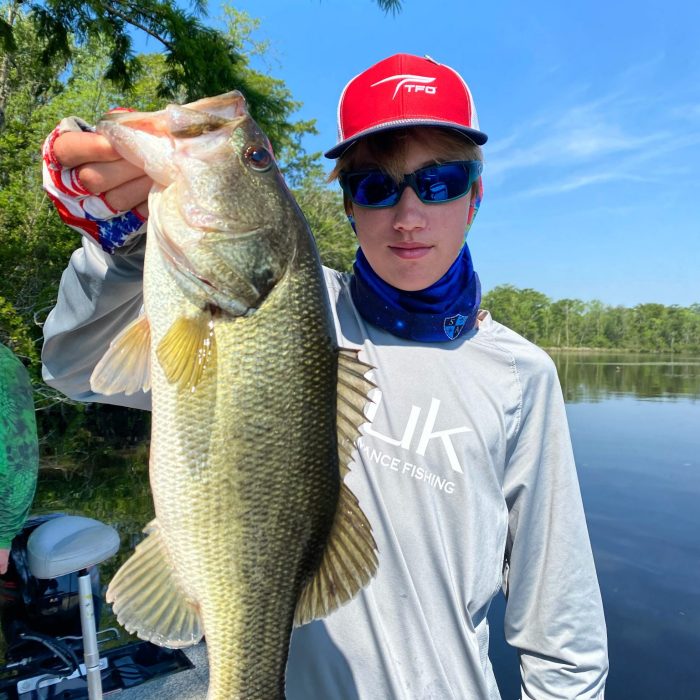
The Lower Roanoke River Game Land offers a wide range of recreational activities for visitors to enjoy. These include hunting, fishing, wildlife viewing, and hiking.
Hunting is a popular activity in the game land, with deer, turkey, and small game being the most common targets. Fishing is also a popular pastime, with the Roanoke River and its tributaries offering a variety of fish species, including bass, catfish, and crappie.
Wildlife Viewing, Lower roanoke river game land
Wildlife viewing is another popular activity in the game land. Visitors can often see deer, turkey, and other wildlife along the roads and trails.
Regulations and Guidelines
There are a few regulations and guidelines that visitors should be aware of when using the game land. These include:
- Hunting and fishing are only allowed during designated seasons.
- All hunters must have a valid hunting license.
- All anglers must have a valid fishing license.
- Camping is only allowed in designated areas.
- Fires are only allowed in designated fire rings.
Historical and Cultural Significance
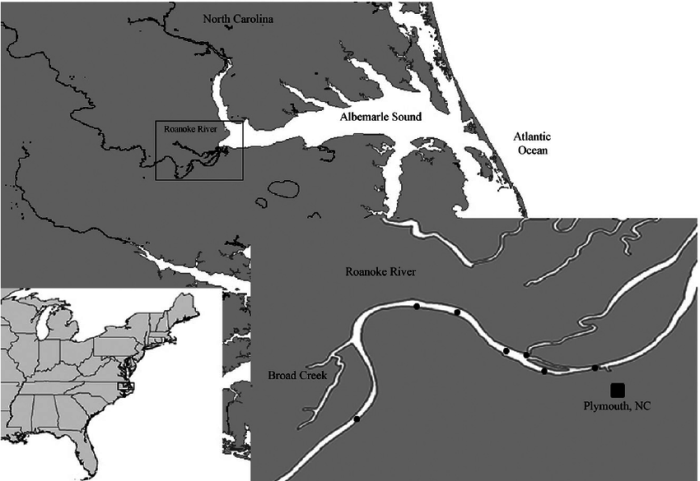
The Lower Roanoke River Game Land has a rich and varied history that spans thousands of years. The area was first inhabited by Native American tribes, who used the land for hunting, fishing, and farming. In the 17th century, European settlers arrived in the area and established plantations along the Roanoke River.
Lower Roanoke River Game Land offers a plethora of recreational activities, including hunting, fishing, and camping. For those seeking more knowledge, the bill nye nutrition answer key provides valuable insights into healthy eating. Back at Lower Roanoke River Game Land, visitors can explore its diverse habitats, from swamps and forests to rolling hills and open fields.
The game land was also a battleground during the American Civil War.
Archaeological and Historical Sites
There are several archaeological and historical sites within the Lower Roanoke River Game Land. These sites include:
- The Roanoke River Burial Ground is a Native American cemetery that dates back to the 16th century.
- The Battle of Roanoke Island was fought in 1585 between English colonists and Native Americans.
- The Roanoke Colony was established in 1587 by English colonists. The colony disappeared mysteriously in 1590.
These sites are a testament to the rich history of the Lower Roanoke River Game Land and its importance to the local community and cultural heritage.
Conservation and Management
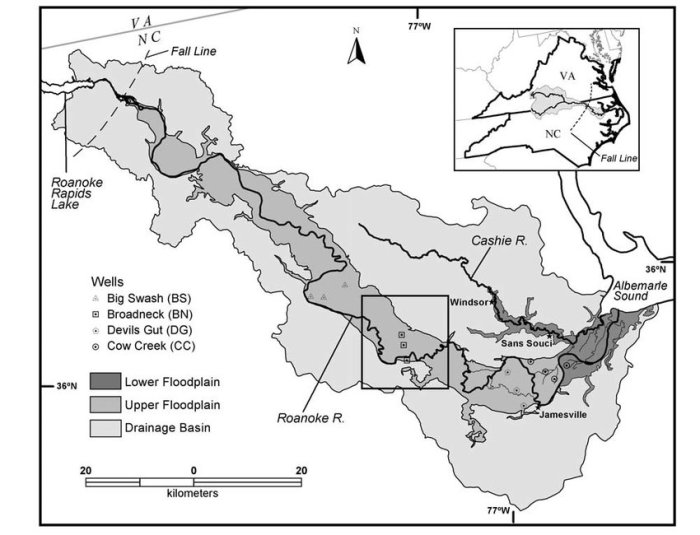
The Lower Roanoke River Game Land is dedicated to preserving the area’s natural resources and providing opportunities for responsible outdoor recreation. Conservation efforts include:
- Habitat Restoration:Restoring degraded habitats, such as wetlands and forests, to support diverse plant and animal communities.
- Invasive Species Control:Managing and controlling invasive plant species to protect native ecosystems and biodiversity.
- Wildlife Management:Implementing science-based wildlife management practices to ensure sustainable populations of game and non-game species.
- Water Quality Protection:Preserving and enhancing water quality through erosion control, stream restoration, and riparian buffer maintenance.
- Educational Outreach:Promoting responsible land use and stewardship through educational programs and outreach activities.
Wildlife Management Practices
Wildlife management practices in the game land include:
- Habitat Improvement:Enhancing habitats through prescribed burns, forest thinning, and nest box installations to support diverse wildlife species.
- Population Monitoring:Conducting regular wildlife surveys to assess species populations, distribution, and health.
- Hunting and Trapping Regulations:Establishing hunting and trapping seasons and bag limits to ensure sustainable wildlife populations.
- Wildlife Research:Collaborating with researchers to conduct wildlife studies and contribute to the understanding of wildlife ecology and management.
Tourism and Economic Impact
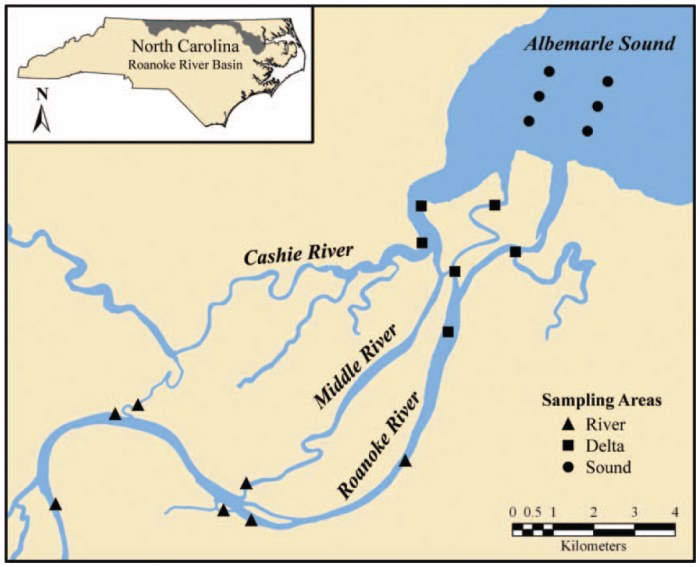
The Lower Roanoke River Game Land has a significant impact on the local economy, contributing to the growth and sustainability of the surrounding communities.
The game land serves as a popular destination for outdoor enthusiasts, attracting visitors from both near and far. These visitors engage in various recreational activities, including hunting, fishing, hiking, camping, and wildlife viewing, which generates revenue for local businesses such as hotels, restaurants, and sporting goods stores.
Economic Benefits
- Revenue generation through recreational activities
- Increased tourism and visitor spending
- Job creation in the hospitality, tourism, and recreation sectors
- Stimulation of local businesses and entrepreneurship
Promotion of Tourism and Outdoor Recreation
The game land’s natural beauty, diverse wildlife, and recreational opportunities make it a highly desirable destination for tourists and outdoor enthusiasts. The presence of the game land enhances the appeal of the region and attracts visitors who seek a connection with nature and outdoor experiences.
Impact on Local Businesses and the Community
The economic benefits of the Lower Roanoke River Game Land extend beyond direct revenue generation. The game land’s existence contributes to the overall quality of life for local residents by providing a place for recreation, relaxation, and community events.
- Improved quality of life for residents
- Increased property values in surrounding areas
- Support for local conservation and stewardship efforts
- Enhanced sense of place and community identity
Quick FAQs
What is the best time to visit Lower Roanoke River Game Land?
Spring and fall offer optimal conditions for wildlife viewing, while hunting seasons vary depending on the target species.
Are there any restrictions on camping within the game land?
Camping is permitted in designated areas only, and reservations are required during peak season.
Can I bring my dog to the game land?
Dogs are welcome on leashes, but they are not permitted in certain areas, such as designated hunting zones.